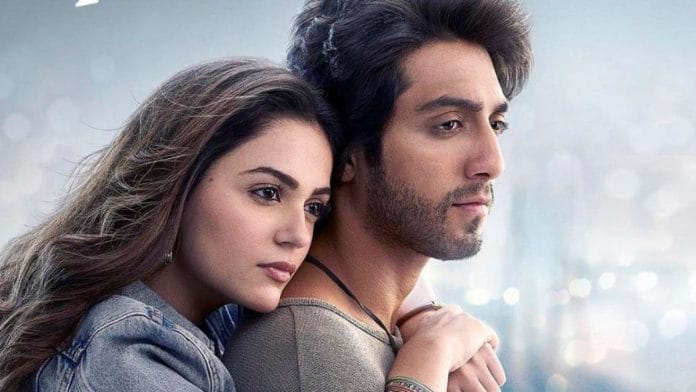Saiyaara, featuring debutants Ahaan Panday and Aneet Padda, crossed the Rs 100-crore mark within a week of its release. The romantic drama, directed by Mohit Suri, has taken social media by storm, with young people dancing, crying, and even fainting in theatres.
Unlike Suri’s previous blockbusters like Aashiqui 2 (2013) and Ek Villain (2014), this time the lead couple gets a happy ending. However, Suri’s female protagonist—from 2013 to 2025—is trapped in a 1950s mindset of ‘I can fix him’.
It’s a bit annoying at this point when the public discourse has long established that women aren’t rehabilitation centres for men. The idea of “fixing” someone is delusional.
Suri hasn’t changed the way he writes female characters, even though the world around him is changing. Saiyaara has been released at a moment when discussions about healthy relationships are more prominent than ever. Whether it’s your best friend, coworker, or the lifestyle coach on Instagram—everyone talks about setting boundaries. And we’re told to walk away from toxic, emotionally exhausting dynamics.
But, Saiyaara, just like other tragic love stories by Suri, once again showcases the woman as a caretaker of dysfunction — be it anger issues, alcoholism, or drug addiction —rather than someone who can expect emotional maturity from the start.
It’s almost as if the filmmaker is trying to say that therapy is too expensive, so go find a girl instead.
Also read: Priyanka Chopra is the latest victim of Indians’ food hypocrisy
Free therapy, shifting responsibility
While it’s easy to say “It’s just a film” or “It’s only entertainment,” the reality is more complex. Sure, filmmakers aren’t obligated to play moral police, but to pretend that cinema doesn’t influence people, especially the youth, is ignorance.
The reactions spoke for themselves: viral videos showed audiences howling in theatres, some even watching the film with IV drips. Films do leave a mark.
So while storytelling should remain free, filmmakers can’t turn a blind eye to the impact their work has. With influence comes responsibility, whether they like it or not.
So when films like Saiyaara suggest that love is supposed to hurt—that if it’s easy, it’s boring—the audience, knowingly or unknowingly, buys into it.
Women are led to believe that they should tolerate emotional abuse in the hope that their love will eventually change their partner for the better. This is far from reality.
Well, Vani’s love might have pushed Krish Kapoor to fix his behaviour and go heaps and bounds for her, to a point of compromising his career. But it’s a fictional story. Anything is possible, even superhumans exist in cinematic universes.
Another aspect is that films like Saiyaara shift responsibility. They let men off the hook, giving them a free pass to avoid growth, apology or change. Women are expected to do all the emotional labour.
In fact, it also undermines a man’s personal transformation, suggesting it’s something done to him, not something he chooses for himself.
Because if someone only changes because you “loved them enough,” that change rarely lasts. Every day isn’t sunshine and roses; once the love starts to fade, so does the so-called changed man.
In an interview, Animal director Sandeep Vanga Reddy said that it should be normal for couples to hit each other. He’s wrong. My fellow women, there is nothing romantic about being hit, screamed at, emotionally manipulated, or ignored.
Don’t fall for this propaganda, which films like Animal (aggressively) and Saiyaara (subtly) sell by dressing it up with emotional dialogues and heart-wrenching soundtracks.
Right before climax, the toxic becomes a man who is just “troubled.” And his partner is not suffering; she is “saving” him.
The mass hysteria around Suri’s film is loud proof of how the idea of romance is twisted in our heads. If anyone finds it relatable, they’re just romanticising emotional damage. It’s not love.
Views are personal.
(Edited by Ratan Priya)






